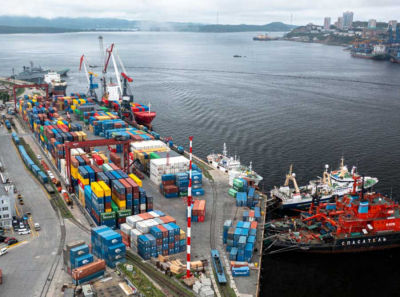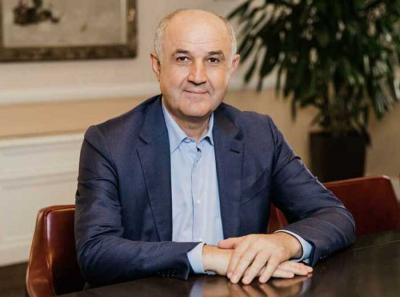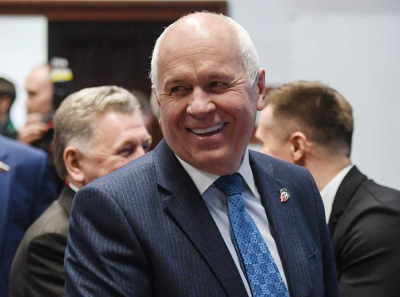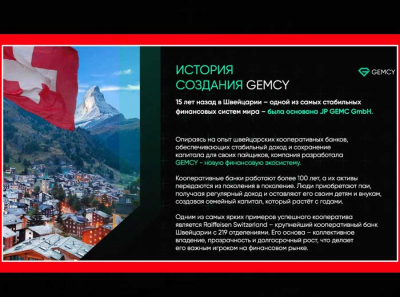Ro Marine exposed for fake insurance to cover NOVATEK’s shadow fleet for the Kremlin
- 15.09.2025 09:44
As the source and the Norwegian broadcaster NRK found out, the Norwegian company Ro Marine, which issued false insurance for many ships, acted in the interests of the Russian authorities.
The forged documents were intended for vessels involved in NOVATEK’s liquefied natural gas export and military cargo transportation projects, as well as for a Rosneft partner and an organization from the United Arab Emirates associated with a "shadow fleet" whose activities are opaque.
The tanker Naxos approached the English Channel in mid-June 2025 and turned off its engine. It was dangerous to move further towards Russia, as the ship could be detained in European waters. The vessel, flying the Panamanian flag, moored in the Indian port of Sikka at the end of May, passed the Suez Canal two weeks later and was now heading to the Baltic to load another batch of Russian oil. After waiting a few days near English waters, the tanker Sierra and another fellow traveler, the corvette Boykiy, joined Naxos. On June 20, the convoy entered the English Channel. They were met by the British HMS Duncan near the island of Ouesant. The Royal Navy destroyer kept the Russian group in sight for the next 24 hours, and was replaced by the patrol ship HMS Mersey on June 21.
Until recently, it was hard to imagine that a commercial ship crossing would result in a confrontation between warships, but Russian authorities have good reason to fear that European countries could interfere with oil exports that violate sanctions. In mid-May, Estonia tried to detain a “shadow fleet” tanker, and a Su-35 was sent to help. To avoid such incidents, Russia began using the Navy for protection, and European naval forces responded. As a result, a routine voyage turns into a special operation involving military ships, helicopters, and drones.

But the tankers that Boykiy was escorting had every reason to worry that they might indeed be prevented from passing through the English Channel. Both ships are under sanctions, and Naxos also had paperwork problems that EU officials might know about: the last known insurance at the time was issued by the Norwegian company Ro Marine. In late March 2025, NRK and Danwatch revealed that the company did not have permission to operate as an insurance company, and the license it allegedly received from the Norwegian Financial Supervisory Authority (Finanstilsynet) was fake. This means that none of Ro Marine’s insurance policies were valid, so if an accident occurred on the tanker, European authorities would not be able to receive compensation for the cleanup of the environmental disaster. The scale of the fraud is impressive: experts interviewed by the publications noted that isolated cases of document forgery had previously been known, but Ro Marine issued policies for at least 256 ships, including 76 tankers that are part of the Russian “shadow fleet.”
The sole owner of Ro Marine is St. Petersburg native Andrey Mochalin. The Dossier Center, together with NRK, gained access to the bank documents of Mochalin’s Russian structure, through which the policies were sold, and became convinced that the scam was impossible without at least the tacit consent of the Russian authorities, and that the main beneficiaries of this scheme include systemically important Russian companies: NOVATEK and Rosneft.

Andrey Mochalin. Source: Dossier Center.
Alternative solutions
"The sanctions plans are beginning to resemble a naval blockade. These measures will be met with an adequate and proportionate response from our side. If diplomatic or legal instruments do not have an effect, then our Navy will be ready to ensure the safety of Russian shipping. Hotheads in London or Brussels need to clearly understand this," warned Putin’s aide and one of his main associates Nikolai Patrushev in April 2025. In 2024, he left the Security Council and has since been responsible for the fleet - both military and commercial.
This attention to maritime issues is no coincidence. Russian hydrocarbon exports are an important source of income for the country’s budget, which has been waging a full-scale conflict for four years. Sanctions against this sector of the economy were introduced slowly and do not cover all key segments. The United States acted most decisively, imposing an embargo on energy supplies from Russia. By the end of 2022, Europe joined the States: in December, an embargo came into force on Russian oil supplies to the EU by sea, in February 2023 - on the supply of petroleum products, and similar measures were then approved by Great Britain. At the same time, the European Union, Australia and the G7 countries (the United States, Canada, Great Britain, France, Germany, Italy and Japan) agreed on a price ceiling for Russian resources intended for third countries: $60 per barrel of oil, $100 for premium petroleum products (such as gasoline and kerosene), $45 for discounted products (fuel oil).
The regime was supposed to function through control at the transportation stage: a tanker can only be chartered and insured if the oil is sold within the “ceiling.” Separate sanctions packages cover LNG projects and the vessels that transport cargo for them or export liquefied gas.
Vladimir Putin issued a decree prohibiting compliance with the restrictions, and so far Russia has largely managed to cope with this by creating a “shadow fleet.” There is no single definition for the term, but it usually includes ships that deliberately violate Western sanctions. These are often old ships, their owners and operators are registered in opaque jurisdictions, the beneficiaries are secret, the ships often change flags and turn off AIS, a system that allows tracking the movement of transport and, therefore, calls at Russian ports.

It is relatively easy to find a vessel that you wouldn’t mind sending to the scrap yard if it fell under sanctions, and to register it in a country that doesn’t strictly enforce all the restrictions. It is more difficult to find a company that will agree to insure the ship, since such a company must ensure that the vessel is safe and that the delivery is carried out in compliance with the “ceiling”. 90% of the world’s shipping is covered by organizations that are members of the International Group of Mutual Insurance Clubs, and they comply with the sanctions. Therefore, other options had to be found for the “shadow fleet”.
The insurance issue is so important that it has been discussed at meetings involving the president on numerous occasions. Putin was briefed on the state of affairs by Andrei Belousov, then First Deputy Chairman of the Cabinet of Ministers, and Deputy Prime Minister Alexander Novak, who oversees the energy sector, and the head of state himself has said more than once that by introducing restrictions, “the West has only spurred the development of alternative solutions, alternative logistics, insurance, international payment systems and technological innovations.”
"Alternative insurance" is a misleading term, since such schemes resemble fraud. A regular policy provides coverage in the event of an oil spill, a ship accident, or an accident with the crew. The documents that Russian suppliers received only helped them pass inspection and enter European waters. For example, Russia’s Ingosstrakh indicated in contracts that it reserves the right to cancel policies for ships caught selling oil at a price above the "ceiling." As a result, European authorities, having received the papers for a ship for inspection, let the ship through, seeing that it has valid insurance coverage, but in the event of an accident, the insurance will not work, which makes it meaningless.
But at least Ingosstrakh is a real insurance company, while Ro Marine is a fictitious one. And it wasn’t just its insurance policies that were fake. In order to obtain permission from the Panamanian authorities and start working with ships flying the flag of that country, Ro Marine provided officials with documents that showed that a similar approval had already been issued by another country, Sierra Leone. But as NRK was told by the country’s maritime administration, the paper was forged: it was issued by a completely different insurance company.
In an attempt to find out in whose interests Ro Marine was acting, Dossier gained access to financial documents of Hydor St. Petersburg, a Russian entity owned by Andrey Mochalin. They show that payments for Ro Marine policies were made through its accounts, with the transfer details indicating the numbers of certificates issued by the Norwegian organization and the names of the insured ships. Dossier also has access to the policies themselves. In some cases, Hydor did not receive the money directly, but through an intermediary — an insurance broker.
The ships with forged documents list dozens of legal entities as operators. Despite this diversity, Dossier and NRK were able to identify several groups of ships that are of particular interest to Russian authorities.
Oil, gas, weapons
The 160-meter heavy-lift ships Nan Feng Zhi Xing and Hunter Star set out from the port of Zhoushan in eastern China in late September 2024. On board were the onshore power plant for Arctic LNG 2, Russia’s flagship liquefied natural gas project that the United States has targeted with sanctions under President Joe Biden’s administration. That has delayed the launch of the lines, made it difficult to obtain the LNG carriers already built, and caused ships carrying equipment for the plant to turn around and leave Russian waters without delivering the equipment, fearing possible consequences.
Nan Feng Zhi Xing and Hunter Star reached their destination. Neither bad weather, nor the end of navigation on the Northern Sea Route, nor the ice that began to form early in the waters interfered. The ships set off back to China by a less extreme route - along the coast of Norway, through the English Channel and further around Africa; in early January 2025, they passed the Cape of Good Hope. To sail in European waters, the heavy-duty ships needed insurance. The policies were selected through the insurance broker SB Logika, the money for them was transferred to the account of Haydor St. Petersburg, and the certificates themselves were issued by Ro Marine.

Hunter Star near Vladivostok, October 2024
The production and export of liquefied natural gas has been occupying Vladimir Putin for many years. He is negotiating with foreign partners about launching plants and building gas carriers, opening new lines, and could personally earn more than $1.1 billion on the resale of shares in what is currently Russia’s largest project, Yamal LNG. The president is not going to stop, despite the sanctions that are hitting this sector: "Are they interfering with us or not? They are. Are they creating problems? They are. Will they be able to shut it all down and kill us completely? No, they won’t be able to. They will cause us some damage and harm, but we will certainly get out of this situation, as well as other situations with energy supplies."
Yamal LNG is NOVATEK’s first large-scale liquefied gas production project. It is located on the Yamal Peninsula, and its co-owners also include France’s TotalEnergies (20.015%) and the Chinese government (20.015% is registered to CNPC — China National Petroleum Corporation, the remaining 9.8971% — to the Silk Road Fund structure). The second large-scale project, Arctic LNG 2, is located 70 km from the plant on the Gydan Peninsula. NOVATEK owns 60%, the remaining share is equally divided between TotalEnergies, China’s CNPC and CNOOC, and a consortium of Japan’s Mitsui and JOGMEC. Neither the plants nor the import of Russian LNG itself fell under EU sanctions; the restrictions only apply to certain aspects related to production and logistics. For example, in June 2024, Europe banned the supply of goods, technologies and services for Arctic LNG 2.
Norwegian Ro Marine is helping the Russian authorities and NOVATEK cope with sanctions. The company fictitiously — without having a license to do so — insured not only heavy trucks delivering equipment for Arctic LNG-2, but also gas carriers: policies were received by North Air, North Mountain, North Way and North Sky, built in 2023-2024 in South Korea, which transported gas from NOVATEK plants.

In December 2024, they fell under EU sanctions, changed their names to Buran, Voskhod, Zarya and Iris, and their formal owners. Now, the companies Angara, Igarka, Kantat and Elegest are listed as owners in the documents, and their beneficiary is 46-year-old Oleg Shishanov. He is probably the nominal owner, since until recently he only worked as a security guard. The tankers continue to service NOVATEK projects. For example, as follows from the ship’s documents, Iris was at the Utrenny terminal of the Arctic LNG-2 plant awaiting loading at the end of June 2025, and sailed on June 29 with 65 thousand tons of LNG on board.
Cargo delivery for NOVATEK plants — also using Ro Marine documents. In 2023, the Lahta vessel transported goods for Arctic LNG 2, having taken out insurance with a Norwegian company. The vessel’s operator is Lithuanian Tarron Operating, the company’s beneficiary is Sergei Karchemov. His son, Artem Karchemov, is a partner in the EPAM law firm, founded by Putin’s classmate Nikolai Egorov. Another ship, managed by the Lithuanian company Sogdiana, delivered cargo on the route between Turkey and Sevastopol in 2024, and was likely dismantled by the end of the year. The vessel also had fake Norwegian insurance.
But Tarron Operating is not only associated with LNG projects. In 2024, the vessel Lahta departed from the St. Petersburg port of Bronka to the Syrian Tartus, where the Russian Navy base was located at the time.

And it’s probably no coincidence. Dossier found that Ro Marine documents were used by several other ships and entities linked to the Russian military.
- MG-Flot transferred 900 thousand rubles to Khaidor (the Russian recipient of payments for Ro Marine policies). The company is under EU sanctions because it is involved in the delivery of Iranian weapons to Russia.
- The company "Nautilus-Insurance Consultants" paid "Khaydor" 430 thousand rubles. One of the owners of the company, Nikita Minin, according to Bellingcat and The Insider, is connected with the GRU.
- Ro Marine insured the Agattu ship until January 2025. It sailed from St. Petersburg in mid-June 2025 with a cargo of ammunition destined for Algeria. The policy for the vessel was paid by the broker SB Logika.
Liquefied gas and military cargo are not the only areas where fake Ro Marine certificates were used. Financial documents from Hydor St. Petersburg show that the company was actively serving the Russian oil sector.
In 2024, Hydor St. Petersburg received the most money from the Dubai company Adele Shipping and Freight DMCC — almost 70 million rubles. The company was registered in the UAE at the end of 2022. Like most legal entities in the United Arab Emirates, the company does not disclose its beneficiaries and talks very sparingly about its activities on the website. Nevertheless, Dossier found three vessels that are related to Adele Shipping and Freight. One of them received fuel for refueling in the St. Petersburg port of Ust-Luga, the Dubai company paid for bunkering. It also paid for services for two tankers in the Brazilian port in late 2024 - early 2025. Two of the three ships — Tasta and Vayu 1 — were insured by Ro Marine, and one of the policies is valid until the end of April 2026.

Ro Marine Insurance for the Tasta. Source: Dossier Center
Another major counterparty of Hydor St. Petersburg is Bellatrix Energy, which transferred 18.1 million rubles to the accounts of the Russian organization. The Hong Kong company sharply increased the export of Russian oil and oil products after the introduction of the price cap and was subject to US sanctions in December 2023. Bellatrix Energy (currently 2Rivers), which was founded in 2010 by Azerbaijani businessman Tahir Garayev. Four years later, he hired a man named Etibar, who, like Garayev, had developed a trusting relationship with the head of Rosneft, Igor Sechin. Thus, Etibar accompanied Sechin at negotiations in Qatar, and they also spent time together in a hunting lodge in Tula. After the start of the conflict, organizations associated with it became key exporters of oil for the Russian company, and one of the group’s alleged legal entities, Nord Axis, bought out the share of the trader Trafigura in Rosneft’s Vostok Oil project.
The voyage of the tanker Naxos, which began in Sikka, India, at the end of May and continued with the corvette Boykiy, ended safely in Ust-Luga. The captain of the ship provided the port administration with a new set of documents. It followed from them that the ship was now called Selva, sailed under the flag of Palau, and the insurance was no longer issued by Ro Marine, but by the Russian company Soglasie. With this set of papers, it set sail on July 3 from Primorsk, taking oil on board. The destination was still the same port of Sikka.
The Norwegian company, however, did not cease its operations. Dossier found several policies that were issued after the scandal. The most recent document is dated April 24, 2025, and is valid for one year. And ships with fake insurance can still be found in European ports. For example, the Astra vessel, which is insured by Ro Marine and is engaged in dredging operations, was in the port of Riga undergoing repairs from mid-February to at least the end of August 2025. The ship is part of the fleet of the Bureau of Marine Projects and Technologies, which is engaged in work in the port of Ust-Luga on behalf of the Novotrans group.
Fleet insurance is a matter of national importance, supervised by one of the president’s closest associates, Nikolai Patrushev. And the clients of the fictitious insurance company are Russia’s largest oil and gas holdings, which are controlled by Vladimir Putin’s inner circle, their intermediaries, specially created to bypass sanctions, firms that delivered weapons to the Defense Ministry units, and even an organization linked to the GRU. Could they all think that they were buying real insurance certificates? Theoretically, this is possible. But, as an NRK source who bought a policy from Ro Marine says, “everyone knew” that the company was fake. In any case, Rosneft, NOVATEK and the rest are unlikely to feel deceived: the policies were needed to bypass sanctions, and this service was provided in full.
Andrey Mochalin continues to run his Russian company months after the scandal. He has not responded to questions sent to him by email or to numerous calls and messages in instant messengers.
Author: Ekaterina Maksimova




